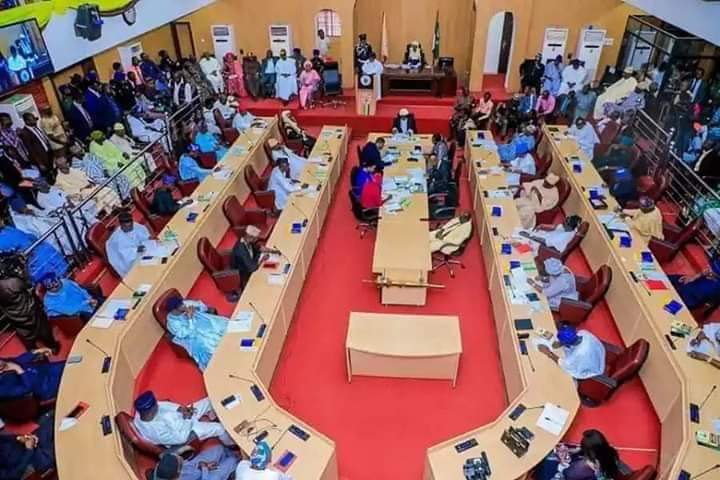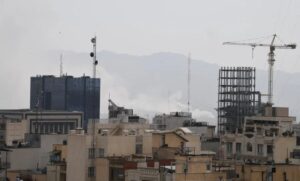The president cannot and must not extend the tenure of the IGP
[ad_1]
The tenure of the incumbent Inspector General of Police, Usman Alkali Baba will soon expire. There are speculations from different quarters whether President Buhari will extend the tenure, as he did with Alkali immediate predecessor. The decision that the President will make will be determined on the state of the law on the issue, and in this wise, the Constitution of the Federal Republic of Nigeria, 1999, as amended and the Nigeria Police Act, 2020 are our guide. Section 215(1) of the Constitution of the Federal Republic of Nigeria, 1999 (as amended) provides for:“An Inspector-General of Police who, shall be appointed by the President on the advice of the Nigeria Police Council from among serving members of the Nigeria Police Force.”
Sections 7(3), (6) and 18(8) of the Nigeria Police force Act, 2020 provide that:“The Inspector General of Police shall be appointed on the advice of the Police Council from among serving members of the Nigeria Police Force…”. Sections 7(3), (6) and 18(8) of the Nigeria Police force Act, provide also that “The person appointed to the office of the Inspector General of Police shall hold office for four (4) years subject to the provision ofsection 18 (8) of the Act.”. The proviso contained in section 18(8) of the Nigeria Police force Act, provides that:“Every police officer shall, on recruitment or appointment, serve in the Nigeria Police Force for a period of 35 years or until he attains the age of 60 years, whichever is earlier.”
It is trite law that where the wordings of statutes (as in this case) are clear and unambiguous, they must be given their ordinary and literal meaning. See Awuse v. Odili (2003) 18 NWLR (Pt. 851) 116. The afore-cited provisions are crystal clear to that only a “serving member” of the Nigeria Police Force can be appointed to and continue to retain the office of the Inspector General of Police. The Constitution of the Federal Republic of Nigeria and the Police Act, 2020 did not make provision for tenure elongation of any incumbent Inspector General of Police. Where a statute has prescribed the mode or procedure for carrying out a particular act, that procedure must be strictly followed. See United Bank for Africa v Ukachukwu (2013) LPELR – 22045 (CA) where the Court of Appeal heldthus:”It is therefore well established that where a statute provides a way by which a thing has to be done, it is only that procedure provided by that law or statute that should be followed. There must be certainty of the law. Parties are not allowed to walk in and out at their whims and caprices….”
By virtue section 215 of the Constitution and Sections 7(3), (6) and 18(8) of the Nigeria Police force Act, 2020, once the IGP attains his retirement age he must retire and it therefore, becomes a legal impossibility to elongate his years of service upon attainment of the retirement age. The laws created no exception and gaps that will enable the President to meander through to extend the service year or tenure of an already retired IGP; as elongating the service year of an incumbent IGP will run afoul of the letters and spirit of the Constitution and the Police Act, 2020.
The fons et origo in Nigeria is the 1999 Constitution. The supremacy of the Constitution is not in doubt on matters that it has expressly provided for. Section 1(1) of the Constitution did not kid about this when it stated that: “This Constitution is supreme and its provisions shall have binding force on all authorities and persons throughout the Federal Republic of Nigeria.”The Supreme Court in the case of A.G. Abia v A.G. Fed (2002) 6 NWLR (Pt.763) 264 (per Kutiji, JSC) re-emphasized the superiority of the Constitution when it held that:“..the Constitution is the mirror upon which our actions or the actions of the National Assembly or any other public institution must be assessed. All actions must reflect the Constitution or else they will be considered as nullity.”.
In the case of GOVERNOR OF EBONYI STATE & ORS V. HON. JUSTICE ISUAMA (2003) FWLR [PT. 169] 1210 @ 1227-1228, where the Court of Appeal, while admonishing public officials, held that:“Obedience to the rule of law by all citizens but more particularly those who publicly took oath of office to protect and preserve the constitution is a desideratum to good governance and respect for the rule of law. In a democratic society, this is meant to be a norm; it is an apostasy for government to ignore the provisions of the law and the necessary rules made to regulate matters”.
ALSO READ FROM NIGERIAN TRIBUNE
[ad_2]













Post Comment